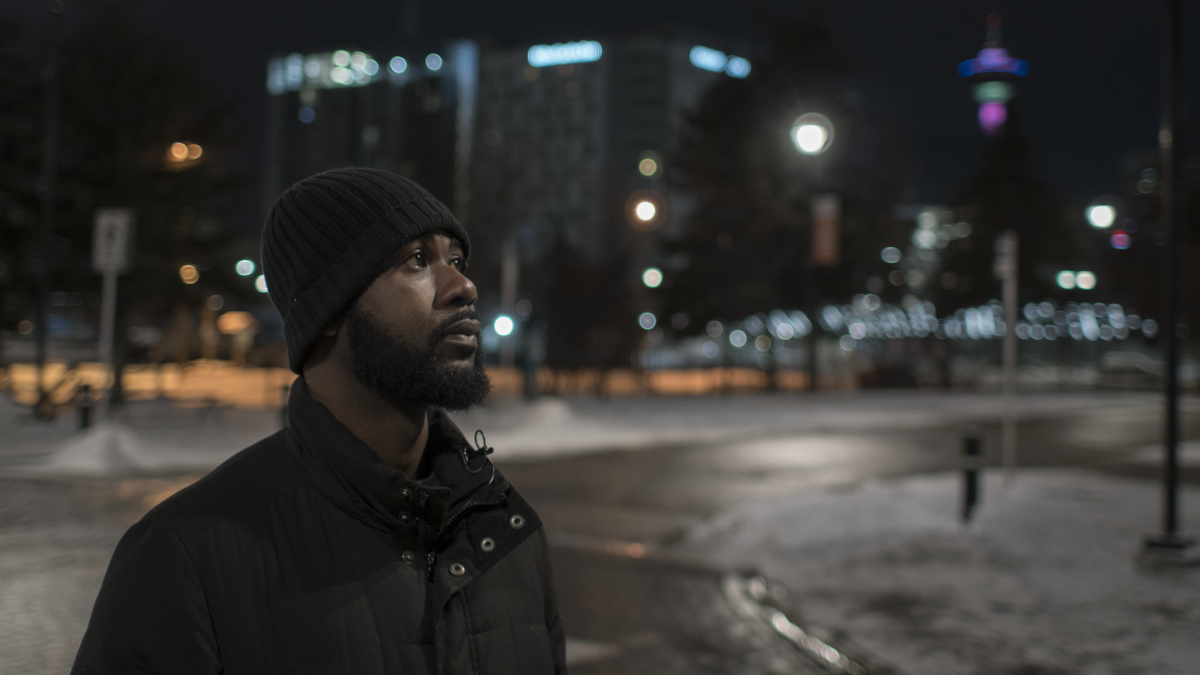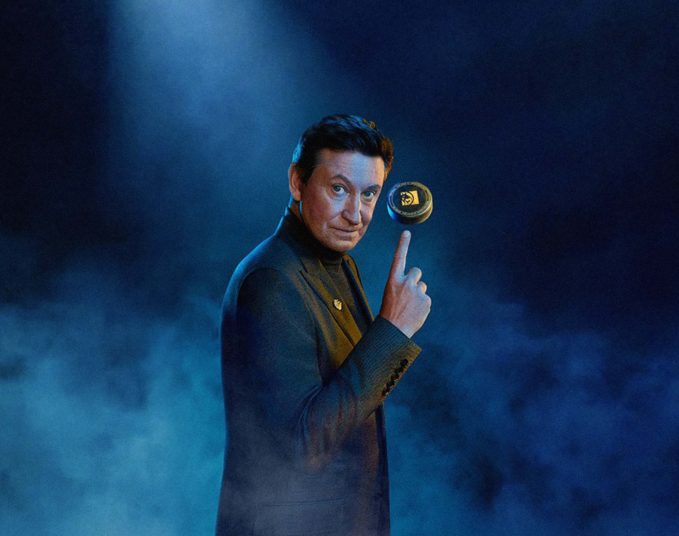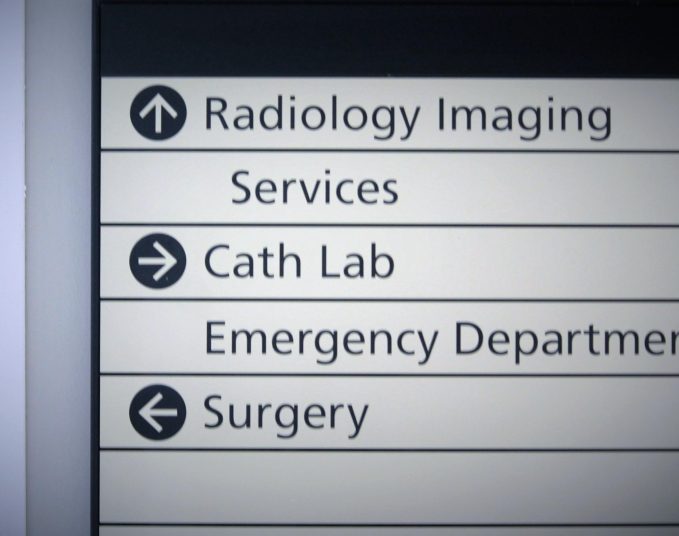About 300 people pile into the Garneau Theatre on a frigid evening in November to watch No Visible Trauma, a 90-minute documentary by two Calgary filmmakers. It weaves together the stories of three people who allegedly suffered from excessive force at the hands of Calgary police officers.
It centres on Godfred Addai-Nyamekye, a Black man whose car got stuck in the snow late one brutally cold night. Two police officers arrived at the scene. They say Addai-Nyamekye became aggressive, a charge he denies. The officers put him in their vehicle and drove him to a quiet construction site in the East Village. They left him there, in his tracksuit and sneakers. The documentary starts with his desperate, pleading call to 911 for help. Things only got worse for him from there. Fortunately, there was video to back up his story.
It also follows the stories of Daniel Haworth, a man who suffered a permanent brain injury when he was thrown to the ground, while handcuffed, by one of the officers involved in the Addai-Nyamekye case, and of Anthony Heffernan, a man who died after being shot four times by police on an apparently routine wellness check.
The evening at the Garneau is not just about watching a compelling documentary. It is a political-action meeting hosted by City Councillor Michael Janz, who has been a vocal critic of the Edmonton Police Service (EPS). He himself was subjected to unwarranted and unwelcome attention from Edmonton police. In January, 2022, Sgt. Michael Elliott, president of the police union, filed 24 complaints with the Municipal Ethics Commissioner – on his own behalf and that of the union – alleging that Janz broke the City Council Code of Conduct in a series of tweets. Allegations included “liking and retweeting known critics of the police service,” and retweeting news about police misconduct in other jurisdictions, including that directed at MLA Shannon Phillips in Lethbridge. The integrity commissioner dismissed the complaints, but Janz says it makes it clear that police will seek to silence and intimidate elected officials who are critical of them.
He also points out that the EPS has not been immune to instances of police abuse, citing the civil lawsuit the EPS faces from Pacey Dumas, a young man who was allegedly kicked in the head by EPS Constable Ben Todd. He suffered a skull injury and required emergency surgery. Todd remains under investigation by the Alberta Serious Incident Response Team (ASIRT), which investigates allegations of police misconduct.
The documentary is followed by a panel discussion. The panel includes Temitope Oriola, a professor of criminology at the University of Alberta. “This documentary chronicles this militaristic, toxic and hyper-masculine approach to policing,” he says. “We also saw the problematic occupational culture where officers do not tell on one another, which means that, regardless of what is happening, the tendency is there to cover up for one another.”
Oriola served as a Special Advisor to former Minister of Justice Kaycee Madu in a review of the Police Act, which governs Alberta’s municipal police services in matters of officer discipline, police service administration and governance. It was passed in 1988 and has not received significant updates since. The review focussed on governance and public trust, Indigenous policing and the role of police.
Oriola’s recommendations included the creation of an independent, civilian-run, one-stop shop for police oversight in the province, led by a former judge. “If you served, you can’t be part of such an entity,” he said. “This is what Norway and Germany are doing.” Currently, every ASIRT investigator is a former police officer and the agency allows them to investigate allegations against members of their former service.
Oriola also recommended an overhaul of the educational and training requirements for police officers. “We continue to treat policing as a set of manual skills that can be done with a Grade 12 education and six months of basic training, which is exactly what they get,” he said. “The results are showing.”
He says ASIRT is the second busiest organization of its kind in Canada. It handles 25.4 per cent of all cases of police shootings and killings of civilians in the country, fewer only than the Special Investigations Unit in Ontario. On a per capita basis, the province should not be ahead of Quebec or British Columbia.
He says far more training and education is required, as is an emphasis on hiring psychologically stable people. He also says the biggest problem may be the lack of consequences for wrongdoers. “The problem is the protectionist racket that is constantly woven around those who do in fact get involved in brutality to civilians,” he says.
The panel also included Dan Behiels, a former EPS officer who alleged corruption within the force and has since been drummed out of it. What struck him about the documentary was that, in every instance, there were other police officers present, but none came forward to allege abuse. “Video evidence is helpful, but it’s a stroke of luck,” he says. “We can’t rely on it. The only chance we do have for justice is the consistent reporting from other police officers when they witness wrongdoing.”
He highlights the importance of whistleblower legislation to protect those who come forward, noting that municipal police officers, such as those in Edmonton, Calgary, Lethbridge and Medicine Hat, are exempted from the current legislation. “They have no legal foundation to prevent retaliation,” he says. “Without it, every police officer that comes forward knows that they will pay with their reputation. More often than not they’ll lose their families. Many turn to suicide. They know it’s not worth it.”
Janz says the evening at the Garneau was not about indiscriminate condemnation of police forces, but about good governance and accountability. “Police legitimacy is only possible when the community has trust in the police,” he says. “The police build trust by being procedurally just, by treating the public fairly and with respect.”
“When people don’t trust the police, they won’t call the police, they won’t obey the police and they won’t cooperate with the police. In other words, good officers, good police, are undermined when the tone set at the top does not treat serious concerns with the utmost of seriousness.”
A shorter version of No Visible Trauma, called Above the Law, can be watched on CBC Gem.
Savvy AF. Blunt AF. Edmonton AF.




